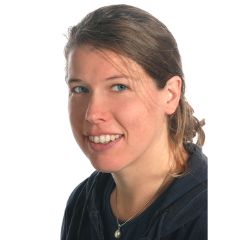Our commitment in Africa
Africa is the continent with the highest population growth in the world. For years, the University Hospital Basel has been involved in various collaborations with hospitals and institutions in Africa in cooperation with various partner institutions such as the Swiss Tropical Health Institute, Swiss Surgical Teams and the Haida Medical Swiss Foundation.
Commitment in Ifakara (Tanzania)
In a long-standing partnership with the St. Francis Referral Hospital in Ifakara, Tanzania, the Ifakara Health Institute and the Swiss Tropical and Public Health Institute, the Department of Infectious Diseases & Hospital Hygiene at the University Hospital Basel supports the Chronic Diseases Clinic in Ifakara. The clinic for people with an HIV and/or tuberculosis infection, which has been in existence since 2004, treats over 4,000 HIV-positive patients in a rural region every year. In 2015, an emergency ward was also set up jointly, which triages and treats 36,000 patients a year. In addition to offering clinical services, the partnerships primarily serve as platforms for training Tanzanian colleagues in clinical patient management, sonography, laboratory diagnostics and scientific projects with the aim of improving medicine in this setting.
Contact us

Prof. Maja Weisser Rohacek
Leitende Ärztin
Klinik für Infektiologie
Leiterin Konsiliardienst
Commitment in Tabora (Tanzania)
The Kitete Regional Referral Hospital is responsible for the primary health care of 230,000 inhabitants of the capital Tabora and as a higher-level hospital for complicated difficult illnesses in the entire region with 2.3 million people.
With over 6,000 births per year, the women's clinic plays an important role in the healthcare system. The high maternal and infant mortality rate reflects the poor staffing, material and financial situation at this partner hospital.
The USB has been working with the Swiss Surgical Teams (SST) at Kitete Hospital since 2015. The focus here is on training medical staff (nurses, midwives, doctors and medical technicians).

Dr. André Kind MPH
Stv. Chefarzt Gynäkologie
Leitender Arzt GAF und Gynäkologische Dysplasieeinheit
Commitment in Somaliland
The first seminar on obstetric emergencies for doctors and midwives took place in Hargeysa, the capital of Somaliland, in February 2019. The country has been a virtually independent state from Somalia since the civil war in 1991, but is not recognized as such by any country internationally.
The maternal mortality rate is around 850 per 100,000 live births and is the fifth highest in the world. The team from the University Hospital Basel, supported by the Hadia Medical Swiss Foundation and the local team of doctors and midwives from Edna Adan at Edna Adan Hospital, trains twice a year in obstetric emergencies using simulation scenarios and workshops. The aim is to optimize emergency treatment and promote interdisciplinary cooperation between doctors and midwives as well as between hospitals and regional health centers.
